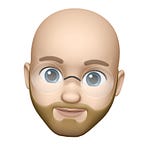What changes as PM levels up?
If you’re wanting to know how to level up your career in Product, it helps to know what actually changes as you progress. A career in PM changes so much as it goes that often it looks completely daunting when you see others further along the path. How do they context switch so much? How do they know all that stuff? How do they have all the answers???
Career levels
More than most other careers, in Product Management the timeline of impact, activities and focus with regards to how your role adds value changes as you level. Here’s a breakdown of how I think about each and what you should probably master next if you want to move up.
Junior (0–3 years experience)
In the beginning you’re going to be pretty hands on in “getting the muck through the pipe.” You’re going to be running stand-ups, writing PRDs & user stories, doing QA, interviewing customers, diving into data, and lots of project management type work. It’s very hands-on and delivery focussed.
The focus: delivery and execution.
Time horizon: 0–3 months
Mid-level (3–6 years experience)
At this point you’re probably doing similar activities as you were but are starting to work more on processes and templates. You’re thinking about creating structure and systems to make your ‘doing of the work’ easier. You’re starting to question prioritisation as you decide what is most important and you’re hopefully shifting to focus more on outcomes than outputs. You should be driving key insights and findings all the way from discovery through to delivery and measurement as you look at the whole delivery process not just the tasks and items — although there is still a lot of hands-on work involved.
The focus: Are we building the right thing, and are we building it right?
Time horizon: 3–9 months
Senior (6–10 years experience)
This is where you really start to take ownership of how what you’re building adds value to the company. How does the product fit into the larger offering to achieve business objectives? What are new opportunities should you be exploiting? At this point you should be the “mini CEO” of your domain and starting to think strategically about P&L, customer trends and maximising value-add of your domain. (A ‘domain’ could be specific product [Consumer App], a whole suite [Delivery apps] or area [Platform] depending on your company.) You’ll also be doing a fair bit of team management, process improvement and monitoring delivery.
The focus: How do we add more value to the business?
Time horizon: 6–24 months
Executive (+10yrs experience)
At this point things start to get a lot fuzzier and very context dependant. Typically though, you’re going to be the overarching strategic leader in the organisation around value creation and capture. You’re thinking about the fundamentals that need to be true for this product to win in the long run, looking at how the product team interfaces with the rest of the organisation, and evaluating team impact and resource planning. I find at this level you’re typically focusing much further ahead outside the company as well as looking at how your team operates within the company. You’re pattern matching larger trends and diving into the details to course correct when you need to.
The focus: What do we need to win?
Time horizon: 18–36months
Product the way, not Product the thing.
The best way that I can articulate the shift as you level up is that you start to focus more on the way in which your teams communicate, collaborate and make decisions in how they create value; instead of focusing on the things that you’re building. I believe that if you can set up a team in the right way they can build many great things. (Read my 10 Principles of great product teams)
I’m not saying more senior PMs won’t sometimes go deep — the best ones do regularly. But, as you level up you’re asking and answering higher-order questions that make the lower level questions either obvious or irrelevant. In the quoted tweet above, the Head of Product isn’t context switching all the time, they’re just fitting a wide array of problems into a larger mental model. It’s a different skill set and a different way of thinking that you develop over time — aka “experience”.
If you liked this, you’d like my other post on “🎄Building a PM career” that unpacks what opportunities to focus on as you level-up. But also check out my full list of Product related posts here.
